Find out how you can get started on being self-sufficient with these 6 things you should incorporate in your routine. Start the habit and let's get started!
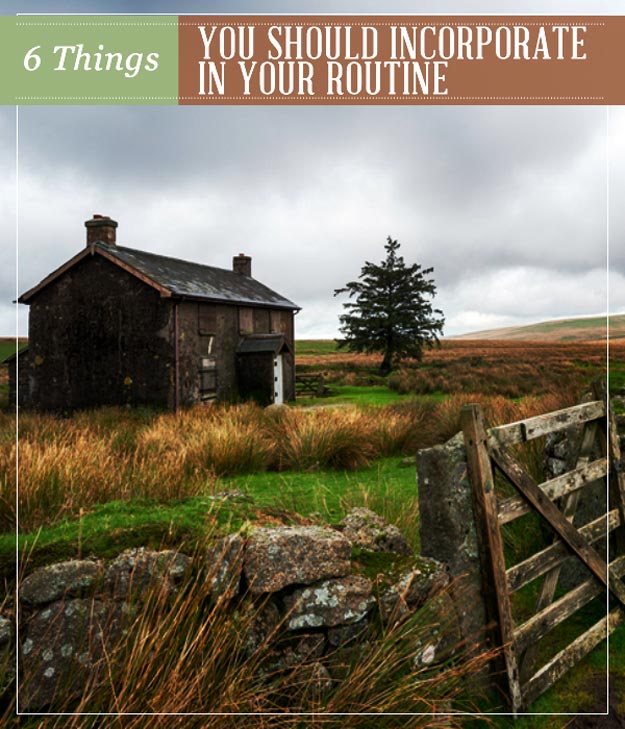
6 Things You Should Incorporate in Your Routine
Become self-sufficient by doing 6 things
There are a ton of tips and tricks out there that focus on things that are ultimately not beneficial in a survival situation. Sure, there are lots of items that would be great to have around in a post-event environment. Does this mean you should be focusing on these lists of gear and other items as a means of preparation? Absolutely not.
We believe to stay really prepared, you have to try and integrate certain habits into your life to improve your chance of survival. Our friends at Survival Life have provided six things you should incorporate in your routine to help prepare you for a survival situation:
1. Incorporate solar electricity in your daily life
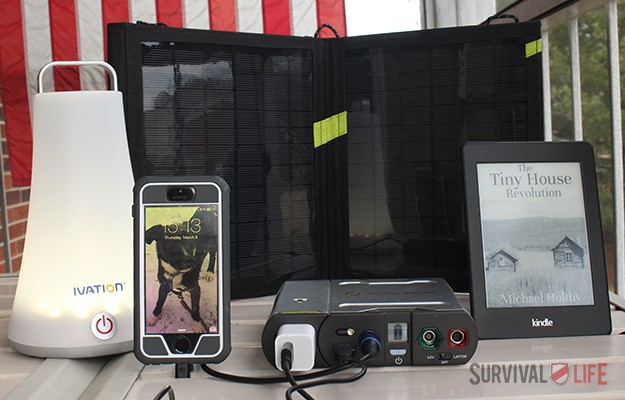
Incorporating solar into your daily life is easy, relatively cheap, and important to do. It's going to get you into the habit of being battery-conscious and sun-conscious. You need sun for electricity so you'll begin to look out for it and learn what works for your solar kit and what doesn't. You'll save a little on electricity charging things with solar every night. Yes, this is going to be a negligible savings, but its a savings nonetheless.
What do I need to do? Buy a small, relatively inexpensive, and versatile solar kit and use it to power your daily electronics. Using solar electricity is also great practice should a natural disaster hit.
Never run out of batteries with this tool that charges many of the things you need. Shop for it here.
2. Cook one meal a week with your bug out kit
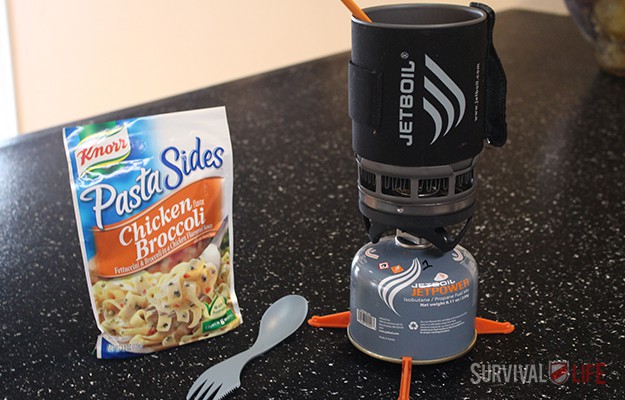
Cooking just one meal a week using your bug out cooking gear can make a drastic difference in the comfort level and safety of your bug out group. You need to be an expert at cooking using the things you'll be stuck with in case of a survival situation. You also need to know if that gear is worn and needs to be replaced, upgraded or downgraded. Finally, it's going to take a ton of stress off of you during an already stressful time. When your whole world changes in a matter of (weeks, days, hours), you're going to be pretty cranky. Dinner time needs to be as peaceful and stress-free as you can make it.
Remember, morale is important for yourself and your group. If you're not the warm and fuzzy kind, just remember that stress can drastically impact your health – especially your immune function and risk of heart attack or stroke. That's important if you're the leader of your bug out group (family) and there aren't any hospitals.
Try cooking just one meal a week (preferably a dinner meal, as they tend to be larger and more complex) using the cooking items in your bug out kit. Notice I said cooking items and not food items. Your stove, cookware, utensils, etc are cooking items. The point here is to be proficient with your tools.
Check out the Biolite perfect for cooking your food and charging your mobile devices! Shop for it here.
3. Incorporate your ‘food storage' into your routine
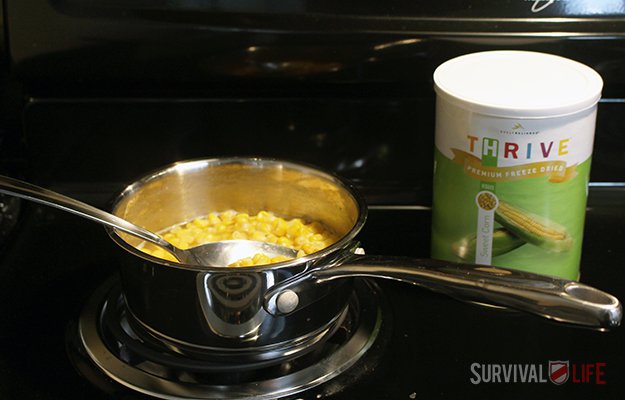
Incorporating your prepping food storage into your regular meal plan will reap large benefits.
You need to know what's in your food storage and what is not. You also need to learn to cook with that type of food (whether it be dehydrated, freeze-dried, etc). Water-absent foods like those we popularly use for food storage require extra steps in the meal-prep phase. You need to know how to get the best results from your food. This is going to keep you from ending up with water-flavored strawberries – and anyone who has reconstituted freeze- dried fruit knows exactly what I'm talking about. It is also important to rotate your food stores. Believe it or not, it does go bad eventually. Don't assume everything in your storage has the same expiration date. Check, label, know!
Finally, you need to know what is working in your food storage and what is not; what you need more or less of. Some families (like mine) like waffles for breakfast. So I'm going to have more Bisquick-like dry foods in my storage than someone who hates waffles. Appetizing meals will help raise morale, keep your group healthy, and decrease stress. What do I need to do? Incorporate your prepping food into your regular meals.
This could be once a week or once a month, but you need to occasionally cook one entire meal completely from your food store. By “completely,” I mean that you can use no ingredients that don't come from your food store. It's a good idea to rotate the meal, as well. Cook dinner this time, breakfast next. If you don't use your food stores routinely, you're not going to know what's in there, and not going to know how to use it. This is going to frustrate you in a post-disaster environment when you're messing with a whole new culinary realm.
Keep morale in mind because humans can do anything with hope and a positive attitude.
Check out Certain Foods canned meat, perfect for home survival kits. Shop for the food with NO EXPIRATION DATE right here.
4. Take one day a week off from all electronics
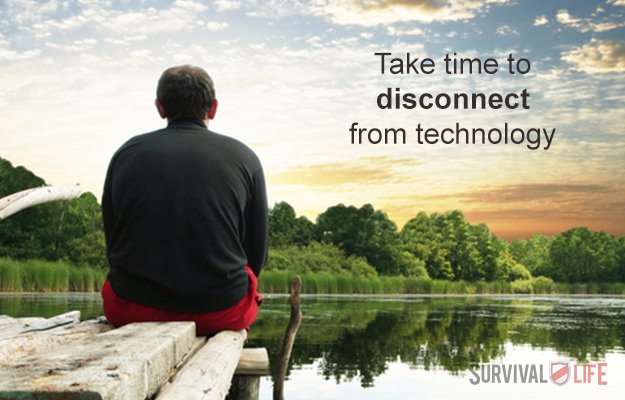
Disconnecting from the electronic world for a day can help you in a post-disaster world. I could tell you about the scientific research showing how occasionally “disconnecting” is having a profoundly positive impact on people, but I'd rather state the obvious. Going from a world where technology permeates every part of your life to one where technology is almost entirely absent will be a massive culture shock – and one that can be avoided by learning to live without the tech. This is going to make your life much easier when you don't have a phone to quickly call someone, quickly Google that question or hop on Youtube for a ‘how-to.'
You need to learn to replace those things and you'll never learn what needs replacing until you ditch the tech. What do I need to do? One day a week, turn off your phone, leave the computer alone, keep the TV off, and get out of your house. Go to the park, go canoeing, anything but interact with technology for 24 hours. Basically, be Amish for one day each week.
If you let technology permeate your life until the very last day, you're going to have a hell of a hard road to go in a survival situation when you can't entertain yourself to keep you morale up.
Don't even think about going off grid until you've mastered these 8 Survival Skills. https://t.co/CZqSoUWBOz pic.twitter.com/iXkqnaXlOF
— Homesteading (@HomesteadingUSA) March 8, 2016
5. Buy knowledgeable books and sources

Stock up on books that cover any major survival factor you're not a total expert on. Succeeding in adverse environments depends very largely on two things: one's knowledge and one's motivation. If someone is a survival genius but is depressed and believes it's all for naught, they will sit down and die.
If someone is highly motivated but has no survival knowledge, they will waste away all their energy and die trying, having accomplished nothing. Building up a library to replace Google in the post-disaster world. Buy books in areas that you lack knowledge. If you can't tear apart your car's engine, go get the book from Autozone. If you're not a master gardener, go get an organic gardening book. If you know nothing about electricity, canning, or medicine, buy books. You don't have to read them immediately (although it would help you later) but you do need to have them. The best thing is to write down all the topics you read articles about online and get books to cover them.
If your primary source of survival information is the internet, you’re going to be royally screwed post-disaster. You aren’t going to know any remedies for headaches, ways to repair things, gardening tips or any number of other things you’re not an expert at.
6. Embrace challenges
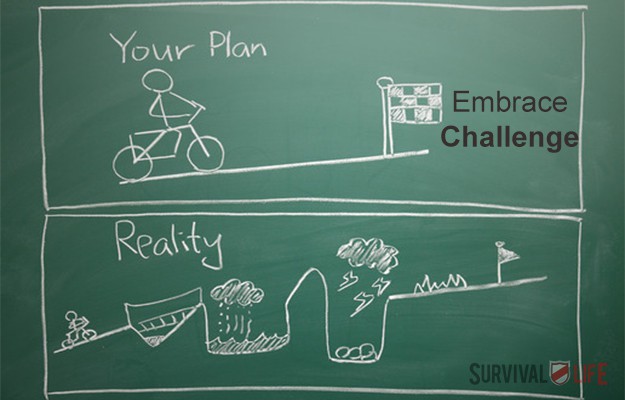
Do things the hard way, the more productive way, the way that instills discipline and character in yourself. This will help you adapt to rapidly changing, often uncomfortable environments. I love a hot, hot shower. Conversely, I hate cold showers. It isn’t just uncomfortable, it puts me in a bad mood. However, I make it a point to take cooler (even borderline cold) showers occasionally.
Another thing I loathe are wet clothes – shirts, underwear, socks, anything. I hate it when my clothes stick to me and I have to peel them off. My goal is to make myself endure uncomfortable things and find some sort of aspect to them that ‘isn’t so bad’ – some sort of mental solace. This way, when cold showers are the standard, I don’t dread them and then act like a jerk to my bug out group afterward. Morale is a crucial element to survival and learning to find the positive in the things you dislike will be easier to do later.
What do I need to do? Deliberately put yourself in situations and environments that force you to overcome your discomfort and find ways to mentally cope. This could mean taking cooler showers, eating food room-temp or cold, or walking to the store instead of driving. You could also eat foods you dislike, sleep with lights or noise, or choose the longest line at WalMart to learn patience.
Need more tips on how to become self-sufficient? Watch it here from mhpgardener:
Does this make you feel more confident on getting started? Let us know what you think about these tips and how you plan on incorporating them in your routine. Share it in the comments below!
Follow us on Instagram, Twitter, Pinterest, and Facebook!
LIKE this? I'm sure you'll LOVE:
9 Things I Always Have at the Barn | Homesteading Essentials

excellent points and ideas! My husband and I just started talking to our adult kids about preparedness this Christmas. We plan to start learning and practicing how to use some of the items of emergency preparedness on our camping trip this summer, such as figuring out how to use a flint and steel to start fires.
I especially love the idea of getting good books on subjects you may need to know but don’t already. Thanks for the article!